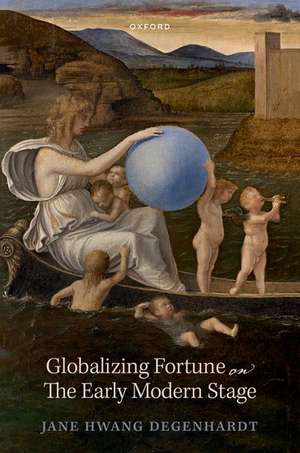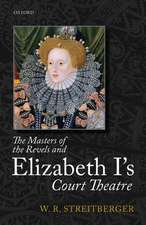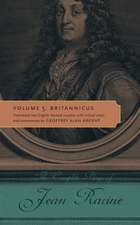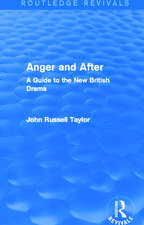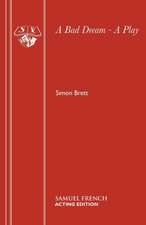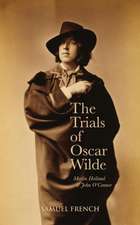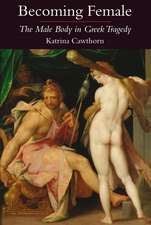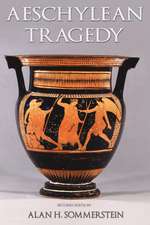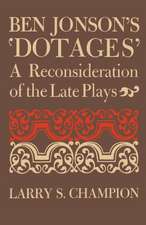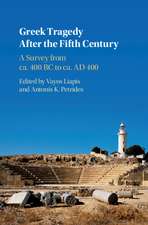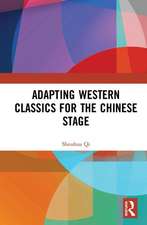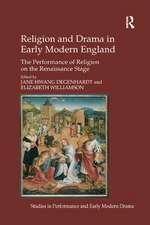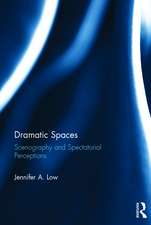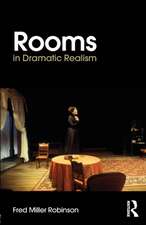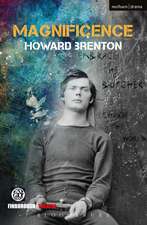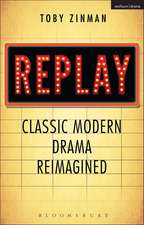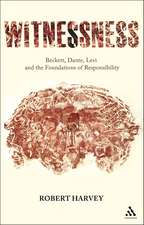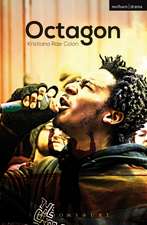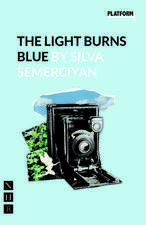Globalizing Fortune on The Early Modern Stage
Autor Jane Hwang Degenhardten Limba Engleză Hardback – 25 aug 2022
Preț: 493.88 lei
Preț vechi: 655.48 lei
-25% Nou
Puncte Express: 741
Preț estimativ în valută:
94.50€ • 102.98$ • 79.63£
94.50€ • 102.98$ • 79.63£
Carte disponibilă
Livrare economică 24-29 martie
Preluare comenzi: 021 569.72.76
Specificații
ISBN-13: 9780198867920
ISBN-10: 0198867921
Pagini: 256
Dimensiuni: 163 x 242 x 18 mm
Greutate: 0.56 kg
Editura: OUP OXFORD
Colecția OUP Oxford
Locul publicării:Oxford, United Kingdom
ISBN-10: 0198867921
Pagini: 256
Dimensiuni: 163 x 242 x 18 mm
Greutate: 0.56 kg
Editura: OUP OXFORD
Colecția OUP Oxford
Locul publicării:Oxford, United Kingdom
Recenzii
Recommended. Graduate students, researchers, faculty.
This book adds much to our understanding of the early modern deployment of Fortune as both a literary trope and a framework for understanding the apparently arbitrary nature of earthly successes and catastrophes...The readings on which this characterization is built are fresh and lively, offering a wealth of new ideas in relation to an interesting mix of canonical and non-canonical texts that will make this book valuable to scholars and students well beyond those specifically interested in the histories of Fortune and trade.
This book is a welcome development in new economic criticism for its careful consideration of the intersection of religion and mercantilism.
This book adds much to our understanding of the early modern deployment of Fortune as both a literary trope and a framework for understanding the apparently arbitrary nature of earthly successes and catastrophes...The readings on which this characterization is built are fresh and lively, offering a wealth of new ideas in relation to an interesting mix of canonical and non-canonical texts that will make this book valuable to scholars and students well beyond those specifically interested in the histories of Fortune and trade.
This book is a welcome development in new economic criticism for its careful consideration of the intersection of religion and mercantilism.
Notă biografică
Jane Hwang Degenhardt is Professor of English at the University of Massachusetts Amherst, where she teaches classes on Shakespeare and his contemporaries as well as on racial trauma and social justice. Her scholarship focuses on early modern drama, with particular interests in the histories of race and religion, the effects of globalizing processes, and the relationship between literature and social justice. She is the author of Islamic Conversion and Christian Resistance on the Early Modern Stage (2010), and co-editor, with Elizabeth Williamson, of Religion and Drama in Early Modern England. She is co-editor of the journal ELR.
